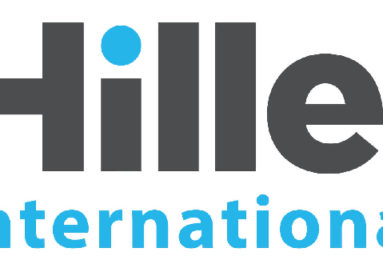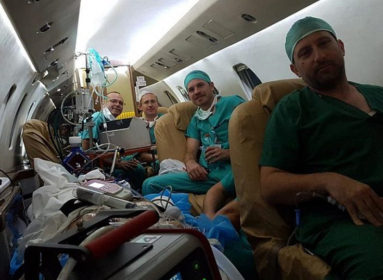
By Sydney Perry
“As we express our gratitude, we must never forget that the highest appreciation is not to utter words, but to live by them”
-John F. Kennedy, Jr.
On Thanksgiving my extended family usually gathers at my sister’s home. We look forward to a day of feasting; of watching the grandchildren play with their cousins; of family unity; of physical satiety and spiritual recognition of our many blessings. A veritable cornucopia of gratitude. And then we head home, each in our own direction, in time for the football games.
But there is something missing. We depart without leftovers for the next day. No leftovers from the enormous golden brown bird, no cornbread stuffing with sausage and chestnuts, or mashed potatoes, rich gravy, veggies or slices of the countless pies. It’s almost a crying shame.
Because I love leftover turkey, because Shabbat inevitably follows the fourth Thursday in the month of November, we make a second Thanksgiving. My immediate family can enjoy our own sideboard, groaning with its burden of enormous quantities of food, in order that we can have sliced turkey sandwiches on challah rolls the next day, and turkey tacos on Sunday, turkey hash on Monday, curried turkey salad on Tuesday, shredded turkey moo shu on Wednesday and turkey gumbo soup from the carcas on Thursday.
Leftovers. Who, after all, were the men and women who celebrated that first Thanksgiving in 1621, a pilgrim re-creation of Sukkot done by leftovers of England? Look at American history. Who came to Georgia? To Virginia? The off-scourings of debtors’ prisons. Massachusetts, Rhode Island, Maryland? Those who couldn’t conform to the religious norms in England? Who made up the waves of migration from Germany, Italy or Ireland? And later from Poland and Russia? Were they the prosperous? Far from it. They were the poverty-stricken, the downtrodden, the desperate outcasts.
The leftovers came to America’s shores – as they still do today – with nothing but hope. Hope for a better life, for religious freedom, for security from intolerance, for advancement for their children.
On the base of the Statue of Liberty is a quote from the Sephardic poet Emma Lazarus: “Give me your tired, your poor, your huddled masses yearning to breathe free, the wretched refuse of our teeming shore, send these, the tempest-tossed to me. I lift my lamp beside the golden door.”
The test of a great nation is what it does with the leftovers. Unless you are a Native American, every one of us is an immigrant whose family made the decision to risk the voyage in order to start a new life. As Jews, we have much to be grateful for in our lives in this great country as we sit down to our Thanksgiving meal.
Look at our own history. The Jews have been called a “remnant” — leftovers. It was the prophet Isaiah who comforted a conquered, scattered people. With their nobles led away in chains, the King blinded, Isaiah preached that the faithful would be a renewed people; that the leftovers would rebuild and be rebuilt. “The stone that the builders rejected would one day become the chief cornerstone.”
And time and time again, we were dispersed and despised.
The Romans’ boot may have pressed our necks, the Crusaders’ sword may have drawn our blood, the Inquisitors’ torturers flayed our skin and burnt our flesh, the Cossacks’ whip drove us into exile from our homes, the Nazis’ death machine decimated our numbers and martyred our people. But there was a saving remnant to carry the word, to live, to teach, to pray and to renew.
And 66 years ago, Israel was reborn, with a leftover people, in a leftover land — our ancient homeland. Seeking a haven, fleeing from persecution, Jews came from the four corners of the globe, to fulfill a 2000-year-old dream. “Liyihot am hofshi, b’ artzenu” — to be a free people in our own land. From Yemen on the Magic Carpet, Iran, Iraq, and India. From all the countries of the Maghreb. From war-torn Europe and concentration camps. Operation Exodus. Operation Moses. Operation Solomon. Nefesh b’Nefesh, bringing Jews from the States. From Argentina and France. B’nei Menashe, immigrants from the northeastern corner of India. And now the last 8000 Jews of Ethiopia .
Leftovers no longer, these olim are the main strength of the State of Israel.
We have much to be thankful for: our families, those who came before us and the precious children and grandchildren who come after us, those who guard and preserve our freedoms, the kindness and generosity that allows us to help others, a religious tradition that bids us begin every day with the prayer “modeh ani” — “I thank you” — that ends the Amidah prayer with “Modim anachnu” — “we thank you” — that encourages our sense of gratitude with 100 blessings a day.
On Thanksgiving, let us not forget to express our thanks for the blessings in our lives.
Sydney Perry is executive director of the Jewish Federation of Greater New Haven.








 Southern New England Jewish Ledger
Southern New England Jewish Ledger














